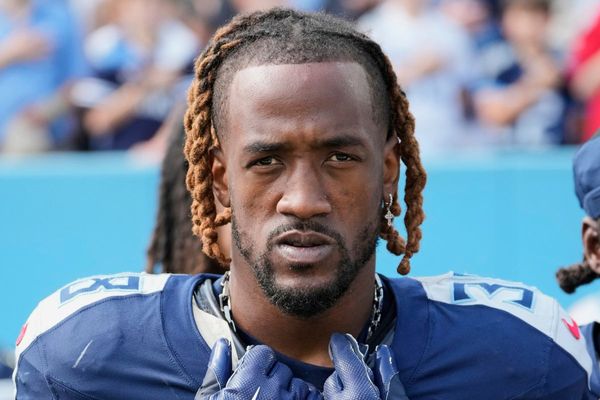Observers hope that discussions on thorny issues like vaccine equity, cooperation in security and infrastructural investment will yield some results at the sixth European Union - African Union summit in Brussels on 17 and 18 February.
A joint article published at the eve of the summit by African Union (AU) Chairperson Macky Sall and his European Union (EU) counterpart, Charles Michel, speaks of "respect and values," a "partnership for stability" and "prosperity" that was "tested by the pandemic".
It also addresses "the growing threat of conflict between blocks", though it concludes that "Africans and Europeans are rolling up our sleeves to work towards an exciting common future".
"These summits are very high on pledges and promises and posturing," says Charles Chinedu Okeahalam, co-founder investment group, AGH Capital, and a former economic advisor to South Africa's ANC government.
He expressed hope that "something may come out" of even "minor pledges", which at least will be followed up.
One of the hottest issues on the agenda is the EU's announcement of the Africa-Europe Investment Package, the 300 billion euro Global Gateway.
Mark Malloch-Brown of the Open Society Foundations says hopes are high that the EU would at least "put its money where its mouth is".
'Scramble for Africa?'
Competition is stiff. Githinji Gitahi, CEO of Amref Health Africa, told RFI that the investment package evokes a modern-day "scramble for Africa", where the EU is competing with other powers for influence on the African continent.
Projects include China's multi-billion dollar Belt and Road Initiative (BRI), the Power Africa project of former US president Barack Obama, and the Asia Africa Growth Corridor, a joint initiative launched by Japan and India in 2017 to counter China's BRI.
In the end "it is Africa that have to decide where they want to go. Africa must have a voice on the table to say what we want to do," says Githinji, .
Criticism of China's BRI has focused on its lack of checks and balances. But for many African countries, China's projects represents an opportunity.
"The traditional [World Bank/IMF] financing model is conditional," says Githinji. It requires African countries "to accelerate their democracy, while they think that it is not yet time."
However, China's "unconditional" loans mean high interest rates, and in some cases countries are forced to give up assets if they can't pay.
"Its basically enslaving Africa," says Githinji.
But as its domestic economy falters, China is cutting down on its BRI projects, and its investment in Africa is being scaled down - just as the EU announced its own investment plan.
"I think if the Europeans are serious, they have an opportunity," says Malloch-Brown.
Much of Africa's infrastructure was set up in the past by Europeans, but it is now in need of maintenance.
"The idea that China and others have come to invest should provide a catalyst for Europe to play a role. It would also provide a catalyst for African countries to partner with European countries to try to meet this challenge," says Chinedu Okeahalam.
Vaccine equity
Improved infrastructure is imperative for distributing life-saving goods, and will help reduce effects of future pandemics.
Which brings up the second main issue at the EU/AU meeting: the vast inequity in access to vaccines, highlighted by the Covid-19 pandemic.
"You've got 12 percent of Africans vaccinated, while 71 percent of Europeans are vaccinated," says to Malloch-Brown.
"If we are to have a sustainable health solution to Covid, we can't leave those inequalities standing."
"EU set to bin 25 million more vaccine doses than it has donated to Africa this year" it's quite the backdrop to the #EUAUSummit https://t.co/nUAb23AaBo
— Mark Malloch Brown (@malloch_brown) February 16, 2022
One of the points of contention is a push driven by India and South Africa - to exempt Covid vaccines from the legal protection they enjoy under the "Trade Related Aspects of Intellectual Property Rights" (Trips), an agreement signed by members of the World Trade Organization in 1995.
A "Trips-waiver" would allow countries to locally produce generic medicine, thus largely speeding up production.
"There is no need for the pharmaceutical companies to accrue their returns in such short period of time," says Chinedu Okeahalam, who does not question the rights of companies to keep their protection, but the "morality" of doing so.
France's swing vote
Delegates at the summit will be looking to French President Emmanuel Macron as "a kind of swing vote on this issue of Trips waivers", according to Malloch-Brown.
According to a statement by the European Parliament, Germany, Portugal, Estonia and Belgium are "reportedly reserved" on granting of the waiver.
Greece, France and Italy are "somewhat supportive", but positions may change during the summit.
A more unified EU position will put more pressure on pharmaceutical companies to give in.
But even if negotiations lead to a Trips waiver, it won't solve the Covid problem, argues Githinji, though "it will set a precedent and a framework for future pandemics. And this is why it's important".







